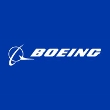The 777X will allow Boeing to maintain its dominance in the widebody aircraft market for the foreseeable future. Between the 787 family and the new 777X family, Boeing now offers highly efficient long-range widebody aircraft that can meet almost any size requirements. Moreover, I don't think Airbus has any good response available.
The decline of the jumbo-jet
For a long time, the market for widebodies capable of long-haul flights was divided between smaller twin-engine jets and large three-to-four-engine planes like the Boeing 747 and MD-11. However, as engines have become more powerful and more reliable, twin-engine designs have taken over more and more of the market.
The original Boeing 777, which entered service almost two decades ago, began that process, as it was close in size to early 747 variants. The 747 has grown in size in order to avoid competing with the 777, while Airbus has more recently introduced the massive A380 "super-jumbo."
However, the super-jumbo segment is a niche market, as most airlines do not fly many routes that can support airplanes of that size. Indeed, while the Airbus A380 entered service six years ago, through the end of October Airbus had just 259 total firm orders . That's the exact same number of orders that Boeing announced for the 777X this weekend alone! (Airbus did receive another 50 A380 orders from Emirates this week, so it is still ahead for now .)
A whole new ballgame
The one factor that keeps four-engine jumbo jets like the 747 and A380 flying is that their higher seating capacities have given them a unit cost advantage. However, a four-engine airplane will invariably burn more fuel per seat than a large twin-engine plane. With the rapid increase in jet fuel prices over the last 10 years, this fuel "penalty" has shrunk the jumbo-jet cost advantage.
US Gulf Coast Kerosene-Type Jet Fuel Spot Price, data by YCharts
With the 777X, improvements in engine technology and wing design are boosting fuel efficiency even further. At the same time, the larger model (the 777-9X) is significantly bigger than the 777-300 (Boeing's largest twin-engine plane today), or the A350-1000 that Airbus is currently developing. As a result, the 777-9X will have the lowest unit cost of any commercial airplane .
If the 777-9X really does deliver unit costs below the 747 and A380, it will rapidly cannibalize demand for both jumbo jets. Aside from a few special cases, there is no reason for an airline to operate a larger airplane unless it offers a lower unit cost. Otherwise, reducing the number of seats available is a no-brainer, because it boosts unit revenue, leading to higher margins.
Out in the cold
Airbus has done an admirable job growing in the narrowbody market; its A320 aircraft family has overtaken the Boeing 737 in terms of future orders. However, it has been unable to catch Boeing in the widebody market. Despite a variety of reliability issues, Boeing's 787 Dreamliner just passed the 1,000 order mark , whereas the competing Airbus A350 only had 764 orders as of Oct. 31 .
The launch of the 777X will complete Boeing's domination of the widebody market. Boeing has effectively "covered" the A350's market and then some with its new widebody lineup. At the bottom of the A350 family, Boeing's 787-9 competes directly with the A350-800. The recently introduced 787-10 competes directly with the A350-900. Meanwhile, the new 777-8X competes directly with the larger A350-1000 model .

Boeing also launched the 787-10 this year, filling another market segment (Photo: Boeing)
However, Boeing also has the 787-8 (which is smaller than any A350) and the 777-9X (which is larger than any A350). The result is that while Airbus was able to save money by developing a single twin-engine widebody to serve a large swath of the market, Boeing can offer its customers a greater range of sizes. With unique planes at the bottom and top of the twin-engine widebody spectrum, Boeing can meet the needs of any airline, in a way that Airbus cannot.
No good solution
Right now, there are no particularly good options for Airbus. It's probably not feasible to stretch the A350 any further than it has already done with the A350-1000. On the other hand, if Airbus developed a true competitor to the 777X, it would cannibalize A350-1000 sales.
As a result, Airbus is likely to stand pat and try to compete on price with the A350 and A380. For the moment, the A380 also has the advantage of availability -- today, airlines are looking at nearly 10-year lead times for the 777X. However, in the long run, the superior economics of the new 777X can virtually guarantee Boeing a big lead over Airbus in the widebody market.
There's only one stock you need to know about in 2014. And it could produce gains of 666%, 735%, 930% -- OR MORE. This could be the profit opportunity of a lifetime -- but only for a select few investors. AND ONLY IF YOU ACT IMMEDIATELY. This report details one of the most promising stocks the market currently has to offer. To find out the name of this little-known, high-potential company, click here.
The Death of the PC
The days of paying for costly software upgrades are numbered. The PC will soon be obsolete. And BusinessWeek reports 70% of Americans are already using the technology that will replace it. Merrill Lynch calls it "a $160 billion tsunami." Computing giants including IBM, Yahoo!, and Amazon are racing to be the first to cash in on this PC-killing revolution. Yet, a small group of little-known companies have a huge head start. Get the full details on these companies, and the technology that is destroying the PC, in a free video from The Motley Fool. Enter your email address below to view this stunning video.









 By Adam Levine-Weinberg,
By Adam Levine-Weinberg, 




